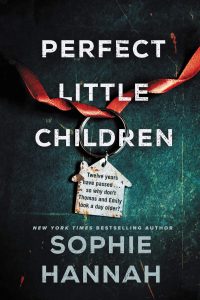 There’s a classic French novel called Le Grand Meaulnes, which is basically in two parts. The first is about a runaway schoolboy who stumbles into a marvelous, fairy tale experience in an isolated, ancient mansion in the countryside. The second half is the prosaic, logical explanation of this seemingly magic occurrence and the resulting quotidian grind of real life. In a way it’s satisfying to know what really happened, but in another way you want to rip the book in two and throw the ending out of the window. Or in the words of the marvelously named Sacheverell Sitwell, “In the end, it is the mystery that lasts and not the explanation.”
There’s a classic French novel called Le Grand Meaulnes, which is basically in two parts. The first is about a runaway schoolboy who stumbles into a marvelous, fairy tale experience in an isolated, ancient mansion in the countryside. The second half is the prosaic, logical explanation of this seemingly magic occurrence and the resulting quotidian grind of real life. In a way it’s satisfying to know what really happened, but in another way you want to rip the book in two and throw the ending out of the window. Or in the words of the marvelously named Sacheverell Sitwell, “In the end, it is the mystery that lasts and not the explanation.”
Which brings me to Sophie Hannah’s latest work of suspense, Perfect Little Children. The set up is immensely compelling — heroine Beth is driving her son to a soccer game and gives into the temptation to have a quick detour to peek at the palatial home of her one time best friend Flora and her husband who, after his professional success, have moved to a ritzy address. Beth is still smarting and guilty about their break up twelve years ago, and not even sure if her former friends still live there, but then she sees Flora, who is accompanied by two small children she calls by familiar names, and everything seems just as it was when they were close. But that’s the problem — the children are clearly still children, and haven’t grown up, appearing exactly as they did twelve years ago.
A wild investigation ensues, as Beth unwinds an extremely tangled skein in a fast moving first person, present tense narrative. The reader and Beth both know she wasn’t hallucinating, but her placid husband Dom and various authorities aren’t so sure. There’s active push back from elusive Flora and her manipulative husband Lewis, as succeeding smokescreen scenarios are presented to be debunked by the dogged Beth, who has no compunction about pursuing every trail, eventually flying to Florida to ferret out the ultimate truth.
Sophie Hannah has proven herself adept at dramatizing the domestic details that bring a narrative to life, and a there’s a welcome focus here on the friendships between women, those relationships that can be as fraught and redemptive as the romances that usually preoccupy fiction. Oh, and there’s the denouement too, clever and largely credible, delivered by a voluble villain who explains the whole thing while holding the heroine at gunpoint. It’s almost inevitably a mild letdown, but, oh, what a set up and what a ride there. –Jamie Agnew